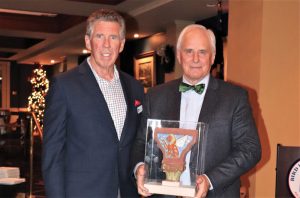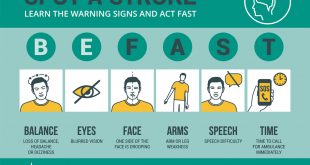Find Out More About Sarasota’s Most Advanced Wound Care And Its Founders


Dr. Desmond Bell, DPM, CWS, is the Founder and President of “The Save A Leg, Save A Life” Foundation, a multi-disciplinary non-profit organization dedicated to the reduction in lower extremity amputations and improving wound healing outcomes through education, evidence-based methodology and community outreach. His private practice in Jacksonville, FL, specialized in wound management and is dedicated to lower extremity preservation. He also serves as Chief Medical Officer of Omeza, a skin health company initially focused on healing chronic wounds and preventing their recurrence.
Omeza, founded in 2017 and based in Sarasota, FL, states its mission is to “restore skin integrity for people with serious skin problems and to optimize skin quality for all.”
We sat down with Dr. Bell to find out more about Omeza’s products and their advanced skin care for chronic wounds and other skin conditions.
Q: How did you get started with Omeza?
A: The background story of how Omeza began is an interesting one. Ten years ago, I was presenting at a conference, and a few individuals in the audience were part of a company that created a product that stopped bleeding on contact. After I finished my presentation, they introduced themselves, told me they were from Sarasota and asked me if they could visit my practice to allow me to evaluate their product and see if it had any potential for wound healing. I agreed, and the first day they visited, a man named Chip Bettle was with them. I had never met Chip, nor did I know anything about him at the time. Chip is a renowned inventor and chemical engineer. Interestingly, he invented liquid Tide. Chip has this inherent interest in learning things to create and find solutions for people. He is also an avid biotechnology solutions developer. He was interested in chronic wounds, so he shadowed me for a few weeks and took detailed notes. Chip started bringing me prototypes from components derived from fish oil. Chip was studying the effects that Omega-3 fatty acids have on wound healing.
A few years later, I heard from Chip, and he invited me to join his team for a new company that he was forming in Sarasota, called Omeza. The team is comprised of fascinating people, and over the years, it’s been growing with impressive talent. Tom Gardner and Chip Bettle are the innovators behind the brand and the product pipeline. Tom is equally as impressive as our CEO. He has a background in the pharmaceutical industry and was involved with the launch of Tylenol for Johnson & Johnson.
What’s different about Omeza on a business level is that the founders were already incredibly successful before forming Omeza. They didn’t need to do it for notoriety or money; they just thrive on inventing and launching products that help people. In this case, we are focusing on the hardest to heal wounds. We all love what we do.
I’ve been in the wound care industry long enough to see companies and products come and go; that’s why it’s crucial to explain how this company was derived from such an altruistic, pure state and its mission comes from a genuine place.
Q: Tell us more about Omeza’s efficacy for wound and skin treatment.
A: With chronic wounds, there are three main issues: inflammation, decreased blood flow, and chronic bacteria called biofilm. Biofilm is different than bacteria in a normal wound; it buries itself deep within the wound and creates colonies that are antibiotic-resistant. Our treatment is designed to address all three issues.
Many chronic wound treatments ask practitioners and patients to wait until the wound is progressively infected before their products can be used. Omeza can be used day one.
Advanced wound treatments are only administered via a practitioner, and they are often extremely expensive and require advanced application knowledge. Our products are simple to use, and require no specialized training
Bringing us back to the fatty acid research and development that Omeza has done, I’m currently putting together a lecture for my peers for an upcoming national convention, and I’m highlighting the fact that marine life, when injured, has an innate healing mechanism. If a fish cuts itself on coral, it bleeds, which can attract predators. However, most marine life heals very quickly, and we believe that has to do with their internal omega fatty acid production. As humans, we don’t produce omega-3 fatty acids, so we need to obtain them from other sources including fish and some plants.
It’s important to explain to patients and physicians that we have several products for patients and consumers to purchase directly. We also have proprietary medical-grade products that are for professional use, and we also have a remarkable new product that is waiting on FDA approval. This new product combines a collagen matrix and fatty acids for advanced healing outcomes.
Omeza technology is not the same as a fish oil supplement. It was developed by incorporating key fatty acid ratios and the calibration of surfactants to create a product that would not fully oxidize before absorption. It is bioavailable and readily absorbed by the skin through specific structural capabilities. Although EFA and DHA are incredibly beneficial in many ways, it’s been shown that you can’t eat enough fish or take enough supplements to get the same benefits as a topically delivered omega-3.
Q. Can you summarize what makes Omeza products different?
A. First, products are anhydrous – meaning that they contain no water – for calibrated moisture management. The patented omega-3 formulas deliver topical nutrients without oxidization. And the technology is cost-effective, and simple to use.
DR. DESMOND BELL,
DPM, CWS
Chief Medical Officer of Omeza
Dr. Bell was awarded the Frist Humanitarian Award by Specialty Hospital Jacksonville for 2009 and Memorial Hospital Jacksonville in 2018. He is a Board Certified Wound Specialist (CWS) having served on the Board of Directors of the American Board of Wound Management for 6 years and presently serving on the Board of the American Board of Wound Management Foundation. He has also been elected as a Fellow of the Royal College of Physicians and Surgeons of Glasgow and is a member of the CLI Global Society. Dr. Bell has published numerous articles primarily pertaining to wound management and lower extremity amputation prevention and has served as an Editorial Board Member for the publication “Today’s Wound Clinic” since its inception. He is nationally recognized speaker, with regular faculty roles at AMP, ASCENT and Modern Wound Care Management.
PATIENTS:
To find out more about Omeza, please visit omeza.com.
PHYSICIANS:
Be a part of changing the future of advanced care. Contact Omeza about clinical trials at omezapro.com.
 Southwest Florida's Health and Wellness Magazine Health and Wellness Articles
Southwest Florida's Health and Wellness Magazine Health and Wellness Articles

